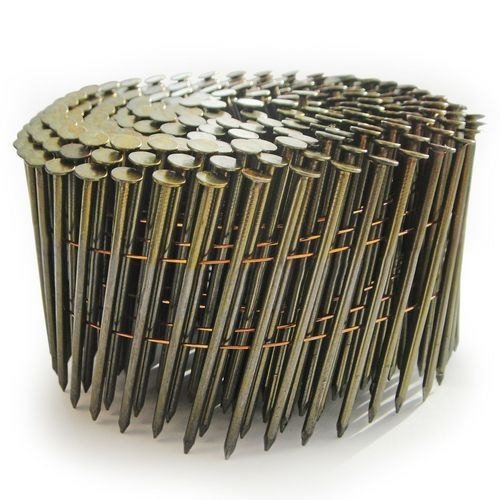How Nail Selection Impacts the Longevity of Your Fence Boards

When it comes to building a fence, the choice of nails may not seem like a major decision at first glance. However, selecting the right nails can significantly impact the durability, stability, and lifespan of your fence boards. A well-built fence not only enhances the aesthetic appeal of your property but also provides privacy and security. Using the wrong nails, on the other hand, can lead to premature wear, structural issues, and unnecessary repair costs. In this blog, we’ll delve into the importance of nail selection and how it directly affects the longevity of your fence board nails.
The Role of Nails in Fence Construction
Nails serve as the primary fasteners holding your fence together. They secure the fence boards to the rails and posts, ensuring that the structure remains intact even under challenging weather conditions. The right nails provide a strong, reliable connection that can withstand years of environmental stress, while the wrong nails can compromise the integrity of your fence.
Choosing the ideal fence boards involves considering factors such as material, size, coating, and application technique. Each of these elements plays a critical role in determining how well the nails perform over time.
Key Factors to Consider When Selecting Fence Nails
-
Material of the Nails
-
Galvanized Nails: Galvanized nails are coated with a layer of zinc, which protects them from rust and corrosion. These nails are ideal for outdoor applications, as they can withstand exposure to moisture and changing temperatures. Hot-dipped galvanized nails are particularly durable and offer superior protection against rust.
-
Stainless Steel Nails: Stainless steel nails are another excellent choice for fence construction. They are resistant to rust and corrosion, making them suitable for areas with high humidity, salty air, or frequent rainfall. While they are typically more expensive than galvanized nails, their longevity and reliability make them a worthwhile investment.
-
Bright Nails: Bright nails are untreated and lack any protective coating. While they may be suitable for indoor projects, they are not recommended for fences, as they are prone to rust and can deteriorate quickly when exposed to outdoor elements.
-
Size and Length of the Nails The size and length of the nails you choose are crucial for ensuring a secure fit. Nails that are too short may not provide enough hold, while nails that are too long can split the wood and weaken the structure. For fence boards, nails should typically penetrate the rails by at least 1 to 1.5 inches to provide adequate support.
Common nail sizes for fencing include: -
6d to 8d Nails (2 to 2.5 inches): Ideal for attaching fence boards to rails.
-
10d to 16d Nails (3 to 3.5 inches): Suitable for heavier or thicker boards and structural connections.
-
Coating and Corrosion Resistance Coatings play a vital role in protecting nails from rust and corrosion. In addition to galvanized and stainless steel options, there are also vinyl-coated nails that offer added durability. Using nails with a protective coating is essential for outdoor fencing, as exposure to rain, snow, and humidity can quickly degrade untreated nails.
-
Environmental Considerations The environment in which your fence is built should influence your nail selection. For example:
-
In coastal areas, stainless steel nails are recommended due to their resistance to salt-induced corrosion.
-
In regions with frequent rainfall or high humidity, hot-dipped galvanized nails are ideal for preventing rust.
-
In dry climates, the risk of rust is lower, but coated nails still provide added longevity and peace of mind.
Common Issues Caused by Poor Nail Selection
-
Rust and Corrosion Using nails that are not corrosion-resistant can lead to rust, which weakens the nails and causes them to break or lose their grip. Rust can also stain the fence boards, creating unsightly discoloration that diminishes the overall appearance of your fence.
-
Wood Splitting Incorrect nail size or improper nailing techniques can cause the wood to split, especially near the edges of the boards. Split wood not only compromises the strength of your fence but also exposes the interior to moisture, leading to rot and decay.
-
Loosening Over Time Nails that are too short or lack adequate holding power may loosen over time, causing the fence boards to shift or fall off. This not only reduces the structural integrity of the fence but also increases the need for maintenance and repairs.
-
Premature Deterioration Poor nail selection can accelerate the deterioration of your fence, resulting in warped boards, weakened connections, and ultimately a shorter lifespan for the entire structure.
Tips for Proper Nail Application
-
Pre-drill Holes: To prevent splitting, especially when working with hardwoods or near the edges of the boards, pre-drill holes before nailing.
-
Use the Right Hammer or Nailer: A well-matched tool can make nailing more efficient and reduce the risk of mistakes.
-
Check Alignment: Ensure that nails are driven straight and evenly to maintain a clean, professional appearance.
-
Inspect Regularly: Periodically check your fence for loose or rusted nails and replace them as needed to maintain structural integrity.
The longevity of your fence depends on many factors, and nail selection is one of the most critical. By choosing the right material, size, and coating, you can ensure that your fence remains sturdy, durable, and visually appealing for years to come. Investing in high-quality nails may seem like a small detail, but it can make a significant difference in the overall performance and lifespan of your fence.
Whether you’re building a new fence or repairing an existing one, taking the time to select the appropriate nails will save you time, money, and effort in the long run. So, before you start your next fencing project, consider the impact of your nail choices—your fence will thank you for it!
What's Your Reaction?


















